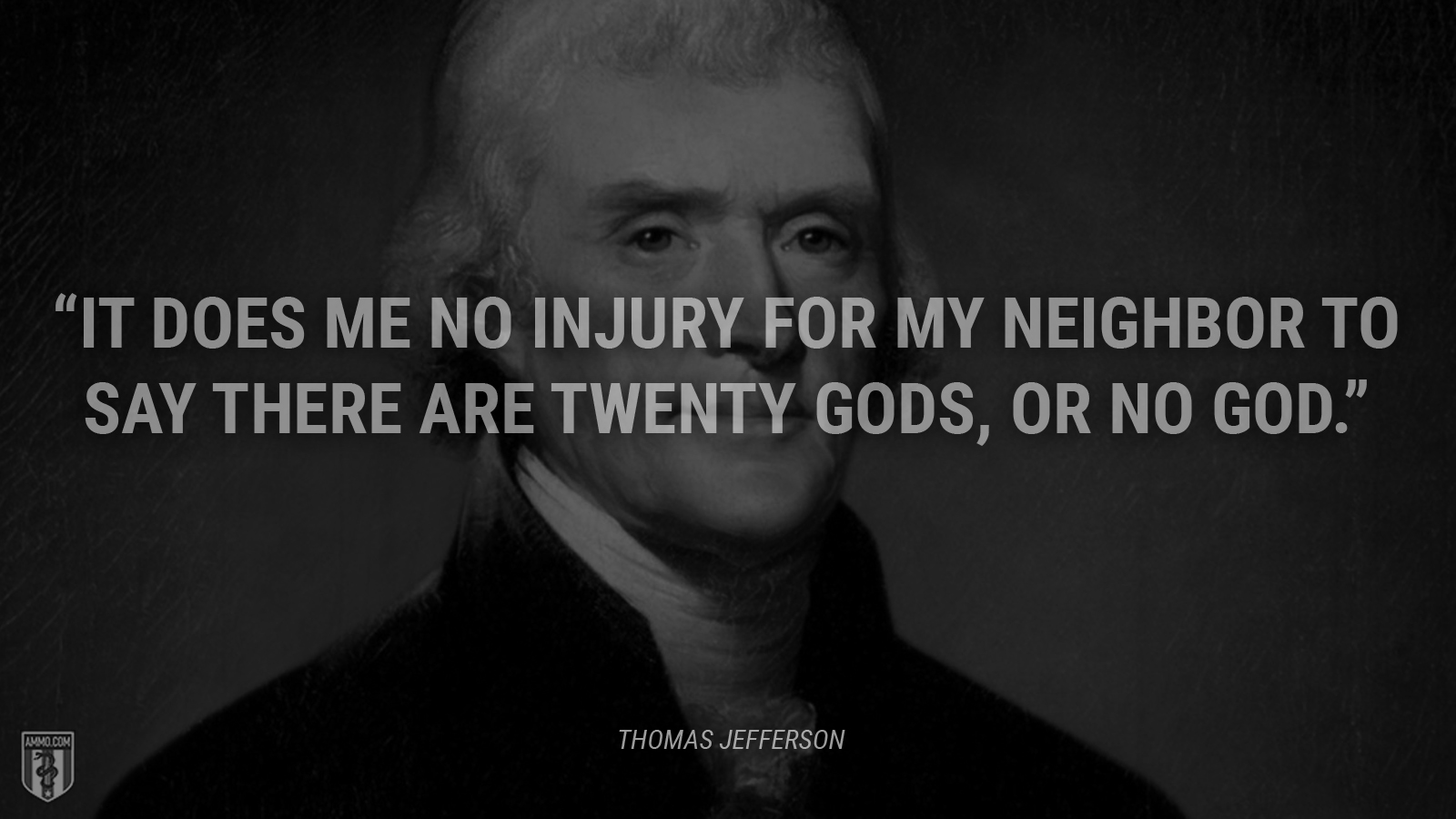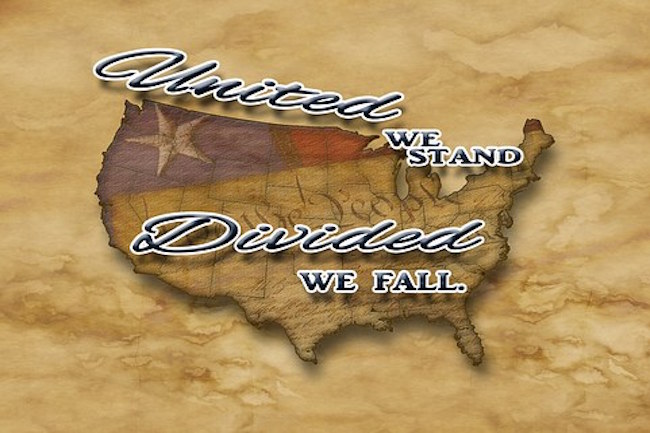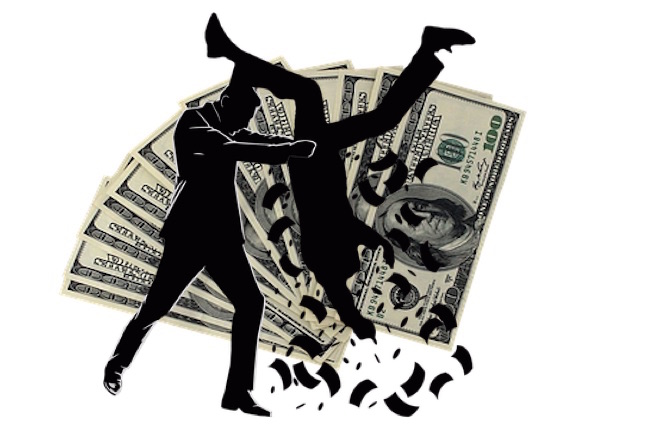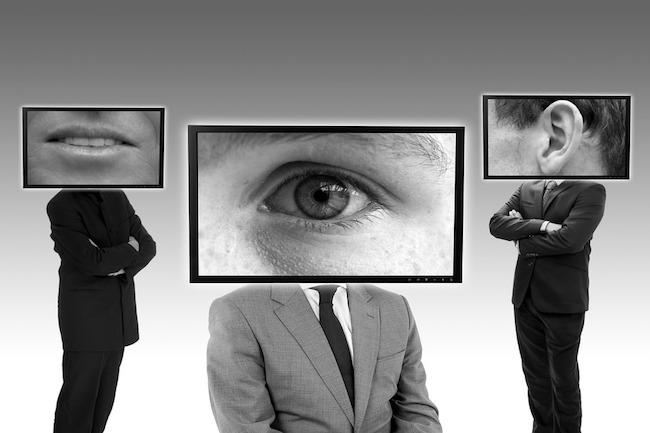Founding Fathers Quotes on Religious Freedom and the Separation Between Church & State from Ammo.com
“Congress shall make no law respecting an establishment of religion, or prohibiting the free exercise thereof; or abridging the freedom of speech, or of the press; or the right of the people peaceably to assemble, and to petition the Government for a redress of grievances.”
Religious freedom was important to the Founders for one simple reason: They themselves were religiously heterogeneous, to say nothing of the new nation. They distrusted the power of an established church like the Church of England. Indeed, many early Americans were religious dissenters escaping such as the Baptists, Quakers and even Catholics. While the First Amendment does not, contrary to popular opinion, provide for “separation between church and state,” it does prevent the federal government from establishing a state church.
Individual states were free to do so. In fact, many did. Congregationalism was a popular choice for New England states. Indeed, Massachusetts was the last state to disestablish the Congregationalist Church in 1833. Currently, eight states prohibit atheists from holding public office (Arkansas, Maryland, Massachusetts, North Carolina, Pennsylvania, South Carolina, Tennessee, and Texas). It is unclear if such laws would pass Constitutional muster, not due to the First Amendment, but the 14th, which prohibits depriving any American of their rights without due process of law.
On Religious Freedom
“Because no People can be truly happy, though under the greatest Enjoyment of Civil Liberties, if abridged of the Freedom of their Consciences, … I do hereby grant and declare, That no Person or Persons, inhabiting in this Province or Territories, who shall confess and acknowledge One almighty God, the Creator, Upholder and Ruler of the World; and profess him or themselves obliged to live quietly under the Civil Government, shall be in any Case molested or prejudiced, in his or their Person or Estate, because of his or their conscientious Persuasion or Practice, nor be compelled to frequent or maintain any religious Worship, Place or Ministry, contrary to his or their Mind, or to do or suffer any other Act or Thing, contrary to their religious Persuasion.”
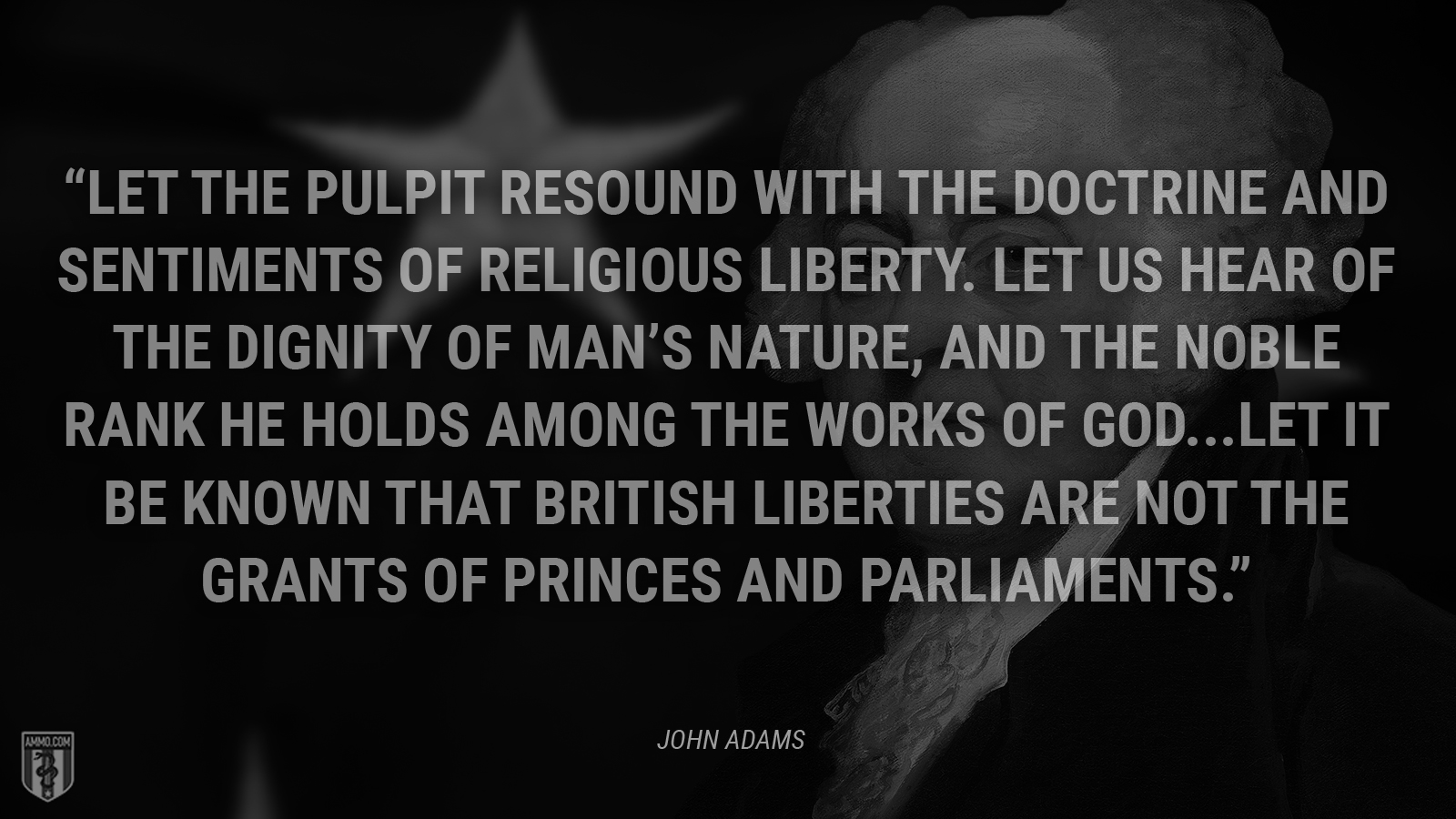
“Let the pulpit resound with the doctrine and sentiments of religious liberty. Let us hear of the dignity of man’s nature, and the noble rank he holds among the works of God…Let it be known that British liberties are not the grants of princes and parliaments.”
“We, the General Assembly of Virginia, do enact that no man shall be compelled to frequent or support any religious worship, place, or ministry whatsoever, nor shall be enforced, restrained, molested, or burthened in his body or goods, or shall otherwise suffer, on account of his religious opinions of belief; but that all men shall be free to profess, and by argument to maintain, their opinions in matters of religion, and that the same shall in no wise diminish, enlarge, or affect their civil capabilities.”
